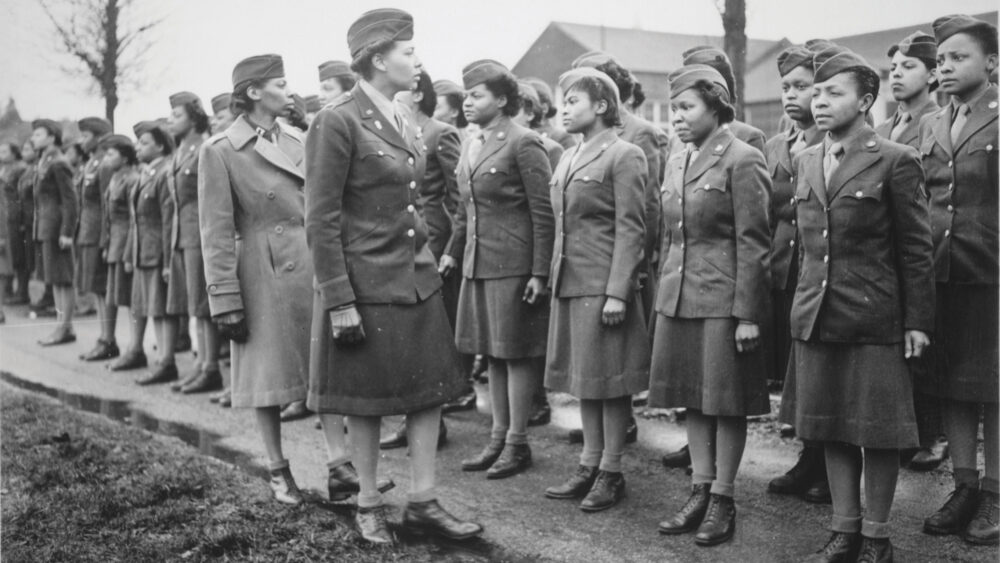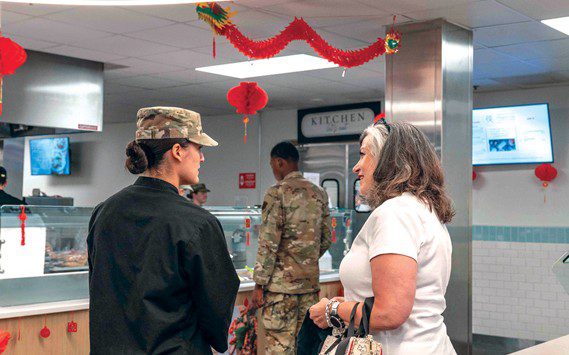
In February 1945, warehouses in Birmingham, England, were filled with millions of pieces of mail intended for members of the U.S. military, U.S. Government personnel, and Red Cross workers serving in the European Theater. Airplane hangars held undelivered Christmas packages, and a constant stream of incoming mail added to the already massive backlog of letters and packages. Oftentimes the mail was addressed simply to “Junior, U.S. Army” or “Buster, U.S. Army.” As Allied forces drove across Europe, ever-changing locations hampered mail delivery to service members. With 7 million Americans in the European Theater, many shared common names (7,500 were named Robert Smith). Service members noticed that they weren’t getting mail from home, and Army officials reported that the lack of reliable mail delivery was hurting morale.
One general predicted that the backlog in Birmingham would take six months to process. But who would take on this massive task? Although there were personnel stationed at Birmingham to handle the mail, the system was in chaos.
Eventually the all black female 6888th Central Postal Directory Battalion was designated and nicknamed “Six Triple Eight.” The battalion trained for their overseas mission at Fort Oglethorpe, Georgia, before being sent to England.
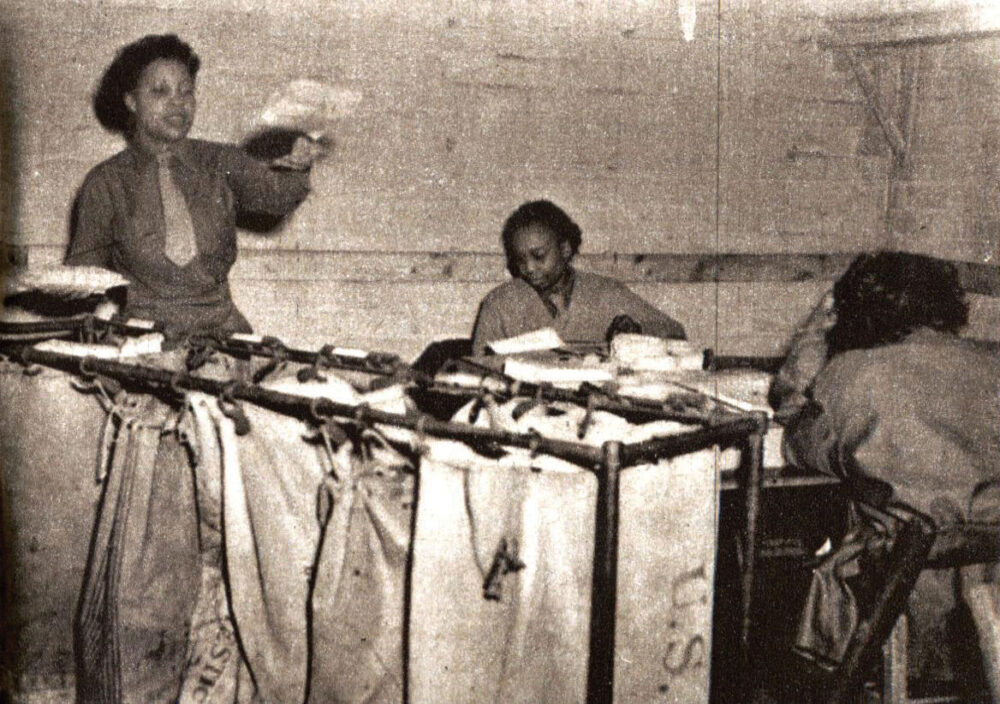
In Birmingham, England, the women confronted warehouses stacked to the ceiling with letters and packages. These buildings were unheated and dimly lit, the windows blacked out to prevent light showing during nighttime air raids. Rats sought out packages of spoiled cakes and cookies. As it was a cold winter, the women wore long johns and extra layers of clothing under their coats while working in these warehouses.
The unit members were organized into three separate eight-hour shifts so work continued around the clock, seven days a week. They tracked individual service members by maintaining about seven million information cards including serial numbers to distinguish different individuals with the same name. The women dealt with undeliverable mail which was sent to their location for redirection. They investigated insufficiently addressed mail for clues to determine the intended recipient, and they handled the sad duty of returning mail addressed to service members who had died. The women of the 6888th were initially the subject of a great deal of curiosity from the local citizens of Birmingham, who came to watch them at work.
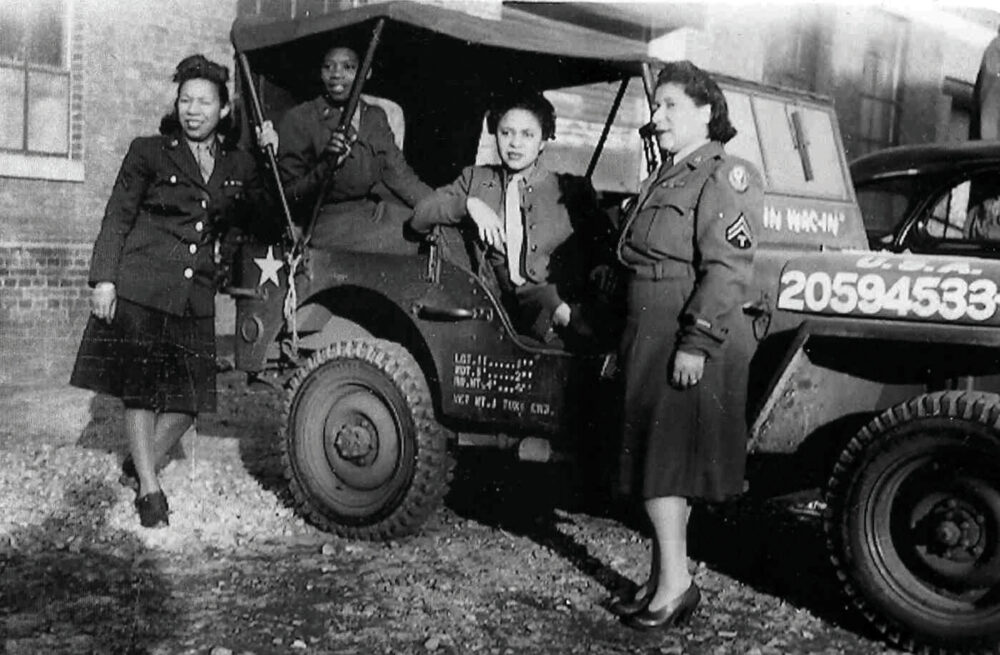
The enlisted women were quartered in the old King Edward School, and the officers were quartered in two houses. None of these facilities were very warm during the winter. Quarters, the mess hall, and military recreational facilities were segregated by race and gender. Although male African-American Soldiers, along with white servicemen and women, had been allowed in a local club for enlisted American military personnel run by the American Red Cross, neither this club nor the American Red Cross hotels set up for WACs in London welcomed the African-American WACs. In response, Maj. Charity Adams, 6888th Battalion commander, led the unit in a boycott of the alternative segregated facilities which the Red Cross offered. The women of the 6888th ran their own mess hall, hair salon, refreshment bar, and other recreational facilities.
The unit was congratulated on its exemplary special services program and observances of military courtesies, as well as the grooming and appearance of members and the maintenance of quarters. However, some inspectors were not satisfied with the level of production.
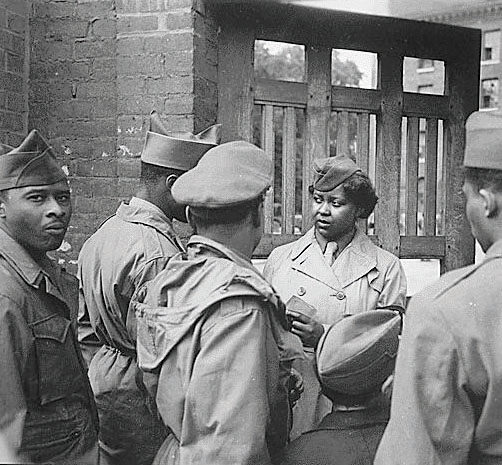
Personal prejudices may have been a factor in some inspectors’ attitudes. Earlier in her military career, Adams had been reprimanded by a colonel for “race-mixing” after accepting an invitation to a white Officers Club. When a male general came to inspect the unit, Adams prevented him from viewing the women’s private rooms while some of them were sleeping. After headquarters and off-duty personnel of the unit were assembled in a formation as instructed, the general chastised Adams for not having all her troops present. When Adams attempted to explain that the women worked three different shifts and that she followed the orders she was given, the general cut her off and threatened to send a “white first lieutenant” to show her how to command the unit. Adams’ famous reply, “Over my dead body, Sir,” nearly earned her a court-martial, but the general was subsequently dissuaded from taking that course of action. By the time the same general visited the unit in France, his attitude had changed and he appreciated the 6888th’s accomplishments.
Additionally, the women of the 6888th were the subject of some hostility and rumors impugning their character spread by both white and black male Soldiers who resented the fact that black women were allowed in the Army.
Despite such treatment, the 6888th CPDB produced great results in Birmingham. With the new tracking system they created, the women processed an average of 65,000 pieces of mail per shift and cleared the six-month backlog of mail in three months. The women adhered to the motto of, “No mail, low morale.”
With the immense backlog in Birmingham gone, the 6888th sailed to France on June 9, 1945, shortly after V-E Day. They arrived in Le Havre and traveled by train to Rouen, where they were cheered and respected by the newly liberated French.
The women of the 6888th now worked with male and female French civilians and with German POWs. They encountered another backlog of undelivered mail dating back as far as two to three years, which, again, would take an estimated six months to process.
After efficiently clearing the mail at Rouen, the 6888th moved to Paris in October 1945. Here, their officers were quartered in the Hôtel États-Unis, and the enlisted women were quartered in the Hôtel Bohy-Lafayette. They enjoyed a higher standard of living than in Rouen or Birmingham, with maid service and chef-cooked meals. With the end of World War II, however, the strength of the 6888th Central Postal Directory Battalion was reduced by nearly 300 personnel, with more than 200 more women eligible for discharge in January 1946.
In February 1946, the remainder of the unit returned to the United States and was disbanded at Fort Dix, New Jersey, without further ceremony. There were no parades, no public appreciation, and no official recognition of their accomplishments, although Charity Adams was promoted to lieutenant colonel upon her return to the U.S.
With the exception of smaller units of African American nurses who served in Africa, Australia and England, the 6888th CPDB was the only African-American women’s unit to serve overseas during World War II.
Courtesy of history.army.mil






